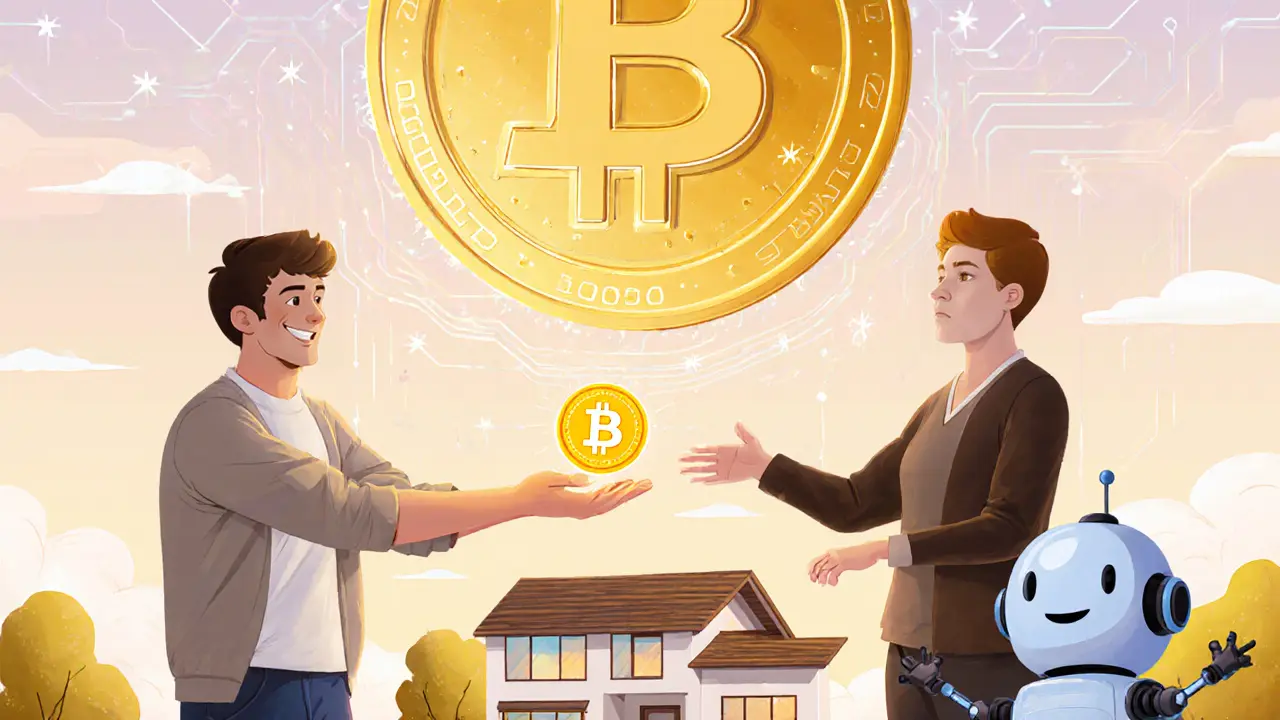When dealing with real estate transactions, the process of buying, selling, or leasing property that normally requires lawyers, escrow agents, and piles of paperwork. Also known as property deals, they shape personal wealth and the broader economy. Traditional steps can take weeks, especially across borders, and every extra signature is a chance for error or fraud.
Enter blockchain, a distributed ledger that records data in immutable blocks, visible to anyone with network access. Blockchain brings transparency and security to real estate transactions by creating a single source of truth that cannot be altered without consensus. Because every change is time‑stamped, parties can verify ownership history instantly, cutting down on title searches and reducing the risk of hidden liens.
One powerful application is tokenization, the conversion of a physical asset into digital tokens that represent fractional ownership. By slicing a property into thousands of tokens, investors can buy a slice of a commercial building for the price of a coffee. This lowers the entry barrier, creates liquidity, and enables secondary markets where tokens can be traded 24/7, something impossible with brick‑and‑mortar deeds alone.
To make tokenized deals enforceable, smart contracts, self‑executing code on a blockchain that automatically enforces agreed‑upon conditions come into play. A smart contract can hold buyer funds in escrow, release them once title transfer is confirmed, and even schedule rent payments to token holders. Because the contract runs without human intervention, the chance of missed deadlines or manual errors drops dramatically.
But issuing tokens isn’t the end of the story. token vesting, a schedule that gradually releases tokens to founders or investors over time is often built into property token launches. Vesting protects the token’s value by preventing large sell‑offs right after launch, aligning holders’ interests with long‑term asset performance. For real estate projects, this means developers stay motivated to complete construction and manage the property responsibly.
Accurate cost forecasting is another piece of the puzzle. Transaction fee estimation tools, like those highlighted in recent blockchain fee predictor reviews, help users anticipate gas fees on Ethereum or transaction costs on Bitcoin before they lock in a property purchase. Knowing the exact fee up front avoids surprise expenses that could derail a deal, especially when dealing with high‑value real estate tokens where even a small percentage matters.
Real estate token platforms often need to bridge multiple blockchains—say, moving a token from Polygon to a Bitcoin‑based settlement layer. Cross‑protocol integration examples show how interoperability solutions such as IBC, LayerZero, or CCIP enable seamless asset movement while preserving the original contract terms. This flexibility lets buyers choose the most cost‑effective network for each step, from token issuance to final settlement.
Regulatory landscapes differ across regions, but recent crypto consumer protection laws and country‑specific guidance (like the Indian regulatory framework or Australian licensing rules) provide a roadmap for compliant property token offerings. By following these guidelines—registering with relevant authorities, implementing KYC/AML checks, and disclosing token economics—issuers can build trust and avoid legal pitfalls that have stalled earlier real‑estate blockchain pilots.
Below you’ll find a curated collection of articles that dive deeper into each of these areas—DEX reviews, fee estimator comparisons, token vesting strategies, and real‑world interoperability case studies. Whether you’re a buyer, developer, or investor, the pieces ahead will give you practical tools and insights to navigate the evolving world of blockchain‑enabled real‑estate transactions.

Learn how blockchain, smart contracts, and tokenization are reshaping real estate deals, cutting closing times, costs, and opening fractional ownership.